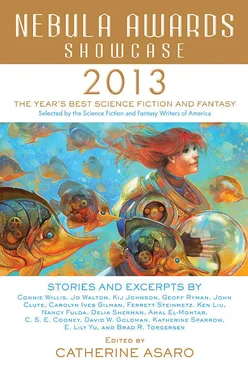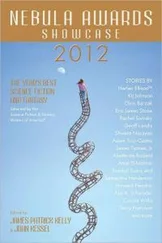“So they had to, what, restore the circulation?”
For a second she doesn’t answer. She reaches up and pulls her ponytail over her shoulder, and then slowly runs her fingers through its end.
“Yes,” she says. “That’s right.” A brunette curl wraps around her finger. “Also—”
She straightens and takes a step away. “I should tell the doctors that you’re awake. They’ll give you a full report.”
If you insist that she stop and tell you everything right now, go to section 341.
If you wait to hear what the doctors have to say, go to section 344.
341
“Well,” she says, “your right hand is going to be fine. Except that they had to amputate the end of your pinkie finger. Just the last joint.”
It takes you a moment to understand that word. Amputate.
But okay. Just the pinkie. You don’t need that one to hold a pick. Not even finger picks. So that’s okay. You’ll still be able to play, no problem.
If that makes you think of Paul, and you ask how he’s doing, go to section 350.
If you realize that the nurse hasn’t said anything about Paul, nor the other guy, and you guess what her omissions must imply, and you recall that it was you who decided that flying would be the right choice, go to section 356.
356
“Okay,” you say. Your voice is louder than it needs to be, and you speak quickly, as if you’re drowning out some other voice. “And my left hand?”
Her finger tightens in her ponytail. “You’re right-handed, aren’t you?”
You nod. You’re busy trying to not think, so you don’t wonder why she asks that.
“There was more damage to your left hand. I’m afraid that they couldn’t save all the fingers.”
She has freckles across both cheeks. You hadn’t noticed that before. Her eyes are green, like the eyes of the cat you had as a kid.
“You still have your thumb, though. And your middle finger should be fine. So you’ll—”
If you think about Django Reinhardt, the Gypsy guitarist renowned for his prowess despite half his left hand being crippled by a fire, go to section 362.
If the only thing you can think about is how, just the other night, your biggest priority had been sleeping in until noon, go to section 373.
373
You stay in the hospital for three weeks. There’s a lot of pain, and two more surgeries. You don’t have insurance, of course, but the hospital’s social worker says that they’ll work out a payment plan for you. You meet her eyes when she says that; after a second she looks away.
This afternoon a therapist is making you squeeze a rubber ball with your left hand, but you keep dropping it. Each time he picks up the ball, without speaking, and puts it back into your hand. The two of you repeat this cycle for five minutes, glaring at each other.
Somebody punches you in the shoulder.
“Ow!” you say.
It’s your nurse, the one with the freckles. You didn’t notice her entrance.
“Get out,” she says to the therapist. Her eyes, though, are locked on your face.
“Look at your hand,” she tells you.
“What?”
“It’s why you can’t hold the ball. You never look at what you’re doing.”
“Fuck you,” you say. And you turn away.
So you aren’t watching when she reaches out and grabs your left wrist.
“Hey!”
She’s stronger than you, despite your panic. She yanks up the hand and holds it before your face. “Look at it.” Her other hand clamps onto your head so you can’t twist away.
So you do it. You look at the hand. At the intact but twisted middle finger. At the half forefinger, wriggling like a decapitated worm. At the puckered stumps at the hand’s outer edge.
“All right!” you shout at her. “I’m looking! Now let go!”
“No,” she replies. “You’re looking at this messed-up thing I’m holding. Now—” and suddenly you realize that her voice, this whole time, has been surprisingly gentle, almost a whisper, “—look at your hand.”
It’s not some immediate, magical thing. But after a few seconds you notice the thumb. And, yes, it’s your thumb, exactly the same as it’s always been. And that’s your palm, with all its familiar lines and creases, including the scar from when you fell onto a rock as a kid. And the fingers—the parts that are still there—those are yours, too.
You lift your other hand, and she releases her hold as you press your two palms together. You turn them back and forth, back and forth, studying what’s there. What’s not.
If, for the first time since the crash, you start crying, go to section 378.
If she’s brought back a memory from your college philosophy class, go to section 125.
125
The professor is roaming the aisles between desks, as he always does, speaking about determinism and free will. You try to pay attention, but you were up all night at a party, jamming some blues with a hot piano player and a lukewarm fiddler while everybody else drifted home or fell asleep in the corners. Now the only things keeping you awake are the cup of dorm coffee you swallowed on the way to class, and the good-looking redhead two rows down, across the aisle.
Somebody punches you in the shoulder.
“Ow!” you say.
The professor stands beside you, massaging his fist. “What’s wrong?” he asks.
“You punched me! Why did you do that?”
He looks confused. “What do you mean? Oh—my fist?” He studies it. “Well, my fist has free will. It hit you for no reason.”
“What?” You know that you’ve fallen into one of his Philosophical Dialogues, but you’re pissed. “Your fist doesn’t have its own will. It does what you decide.”
“Yes, I suppose that’s true.” He draws out the moment, as if you’ve just given him something novel to consider. “Well, I have free will. I punched you for no reason.”
You notice the redhead watching you.
You say, “People don’t do things for no reason.”
“You endorse determinism, then? The claim that everything that happens is predetermined by what’s happened before? So I punched you because, say, I wanted to get your attention. And I wanted to get your attention because you were nodding off. And you were nodding off because—well, I suppose that’s none of my business, is it?”
Your classmates snicker. Except the redhead, who smiles and raises an eyebrow.
“But,” continues the professor, “don’t I have free will? Can’t I make unpredictable decisions, regardless of what’s come before?”
You’re about to speak when you have a sudden insight.
If you think you see how free will and determinism can coexist, how their apparent conflict is merely superficial, go to section 132.
If it strikes you that philosophy is bullshit, and after lunch you drop this course, and then pretty soon you decide to drop the whole university and become a professional musician, go to section 390.
390
You spend two more weeks in the hospital. The nurses explain about changing the bandages. The therapist gives you exercises to do, and a rubber ball.
When you’re discharged you try to leave your guitar behind. But the nurse with the freckles makes you take it.
You drive—of course you can drive, you’re right-handed—to Paul’s memorial service. Lisa, Paul’s wife, widow, hugs you tightly, careful to avoid your bandaged hands. You hug her back, but when you step apart there’s a piece of the way she looks at you that you can’t manage to interpret as sympathetic. Or friendly.
You sit in the rearmost row of folding chairs. The room fills with people all sitting still, watching and listening. Like a concert audience. Your forearms always tighten up right before a gig, and they do that now. But this time your legs tighten, too, and then they start shaking.
Читать дальше












